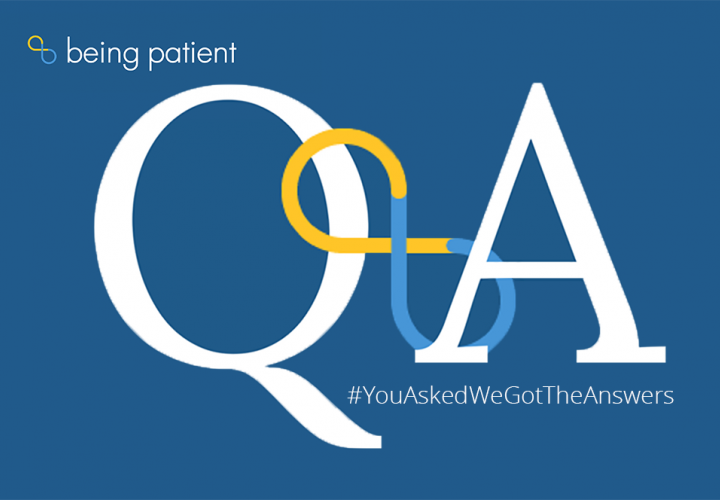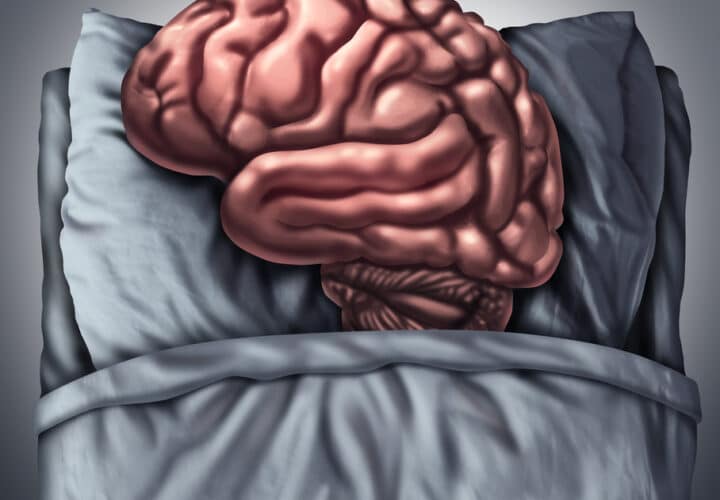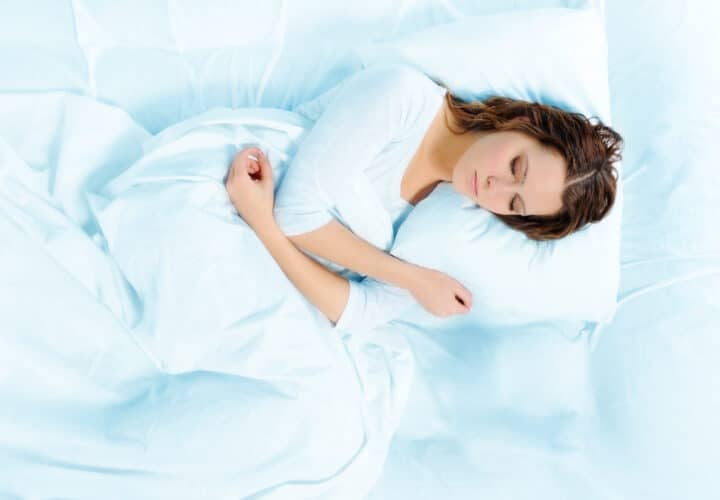As Alzheimer’s progresses, getting a normal night’s sleep becomes difficult for patients. Researchers believe disturbances in Alzheimer’s patients’ sleep patterns may be caused by several factors: the reversal in patients’ circadian rhythms, causing them to stay up at night and to sleep during the day; the fact that as we age, we release less melatonin, a hormone that promotes sleep; sleep disorders like sleep apnea, where breathing repeatedly stops and starts, and restless leg syndrome. Recent studies have found that people with disturbed sleep patterns are more likely to have a build-up of beta-amyloid plaques in the brain, the toxic protein associated with Alzheimer’s disease. According to sleep scientists, the brain cleanses itself during deep sleep and removes beta-amyloid. Too much beta-amyloid may affect the brain’s ability to convert short-term memories to long-term memories.
Alzheimer’s also causes some people to experience sundowners syndrome, a term used to describe behavioral changes, including increased confusion, aggression, agitation, pacing or wandering in the late afternoon and evening. Researchers suggest sundowners syndrome may be caused by a disruption to patients’ internal clock, changes in their daily routine, lack of sleep, difficulty separating dreams from reality, changes in lighting, certain medications or medications wearing off and some infections. Many caregivers ask about sleep, sundowning and which supplements might help with stabilizing sleep patterns. To answer your questions about sundowners syndrome, we spoke to Smita Patel, D.O., a neurology, integrative medicine and sleep disorders specialist at NorthShore University HealthSystem’s Neurological Institute.
“Why is sleep so good for the brain and improving memory?”
A: We know that sleep is a necessity. It’s part of our evolution, and we can’t go around it. So we can try to shorten sleep and say, “I’m not going to sleep and can do whatever I want,” or have an “I want to stay up and watch this TV show” kind of attitude, but we need sleep, so that’s number one. When we go to sleep, we’re actually flushing toxins out, so that is also another important discovery that needs to be stressed. When we get good sleep, we’re also improving our memory, our body’s function and our hormones; while we sleep, a repair process takes place that improves these qualities.
“Is there anything I can do to reduce my mother’s sundowners syndrome?”
The best thing to do when patients experience sundowners syndrome is to try to keep a regular schedule. You can keep the room dark when it’s nighttime so that they can be in a dark space. Then, expose them to light in the morning when they’re waking up and during the day. Keep them active so that they don’t fall asleep, and try to keep a routine throughout the day.
“After my grandma had a seizure, her sundowners syndrome seems to have gotten worse. Could the seizure have affected this process?”
Being ill can disrupt how anyone feels. For example, when you have the flu, you feel tired all day long and you might sleep it off. Once you start feeling better, you bounce back. But in dementia patients, that bounce back takes a little bit longer. If they had an illness such as pneumonia or had a seizure, this disruption is slightly more profound. Again, just try to support them, getting them through their illness or condition. If they’re sick, they’re going to feel ill, tired or moody, and that’s going to want to make them sleep during the day or not be as active in participating in different activities since illness can mess up their sleep schedules.
“Are there good alternatives to over-the-counter or prescribed medications for sleep?”
A: Everyone is affected on an individual basis, so it’s hard for me as a physician to say, “Everybody should take this.” But in general, I find that patients who have dementia may do well with melatonin. Everybody’s usually familiar with melatonin. We don’t need large doses, which I think is a misconception. Anything from 1–3 milligrams can be helpful to sleep. With magnesium, you have to watch for other factors, such as if a patient has kidney problems, but magnesium can be very relaxing if you’re using minerals to help with sleep.
The good thing about melatonin and magnesium is that they’re not sedating, which will be better than prescription medication. If someone takes medication at night, they’re sleepy or sedated, and then they wake up, and they’re still drowsy from the medication. Medication doesn’t really help with something like sundowners syndrome, and it doesn’t help patients participate in activities. Melatonin isn’t a sleeping pill, but it can help with the circadian rhythm, which is often disrupted in dementia patients because of protein accumulating in the brain and the science behind Alzheimer’s that causes patients’ sleep cycles to change.



Omega 3 will it help them sleep also
I want to help find a cure or st least a cause of and for Alzheimer’s.i want to find out what the condition i have is and find a treatment